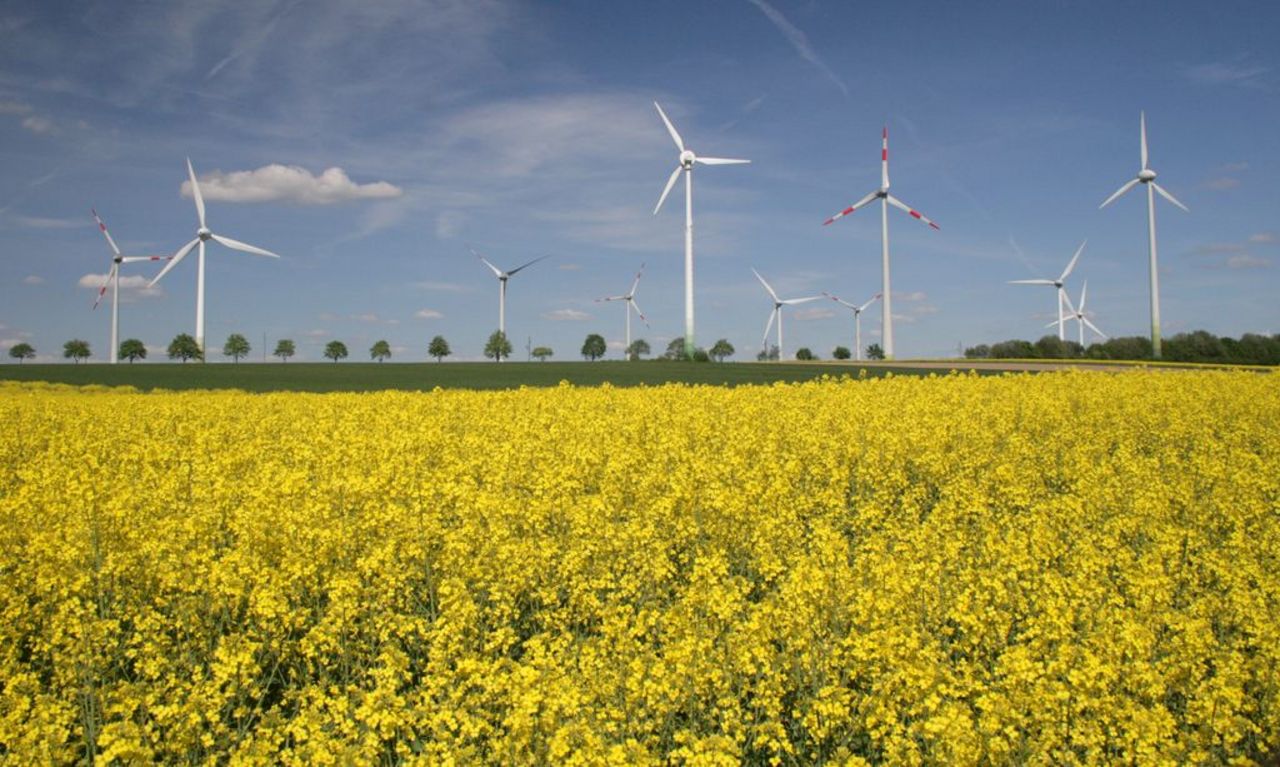Project
WiSoLand: Surveys on economic and social impacts of trans-regionally active investors in agricultural enterprises

Trans-regionally active investors in agricultural enterprises: Surveys on economic and social impacts
More and more agricultural enterprises in East Germany are in the hands of external investors. We examine the impacts of this development on rural regions and on the living conditions in villages.
Background and Objective
In many East German places, agricultural enterprises have in recent years been taken over via so-called share deals. That is the purchase of capital shares of an agricultural enterprise which is a legal entity (for example a cooperative, limited company, or stock company). Many people perceive this critically. But scientifically-based evidence about the impacts of trans-regionally active investors on rural regions is missing up to now.
The project ‘WiSoLand’ succeeds directly to the project ‘Impacts of trans-regionally active investors in agriculture on rural areas’. The research concept which was designed in the preceding project is applied on further case studies in order to be able to derive general statements. Furthermore, some specific topics are analysed in more detail.
Approach
The project ‘WiSoLand’ has two parts:
Part I: Regional case studies
In three case studies, each covering a coherent area of 7 – 15 municipalities, we create a picture as precise as possible of the local agricultural structure and the socio-economic conditions of the municipalities. We gather agricultural enterprises with their land ownership, land management, and their personal and legal relationships among each other. Furthermore we trace the economic situation of the municipalities on the basis of available statistical data.
At the same time we conduct personal interviews with farmers, local mayors and other regional actors in order to examine their view of the relationship between agriculture and municipalities. We combine the results of all five case studies (including the previous project) in a comparative analysis.
Part II: Thematic analyses
Specific topics of particular importance for rural development are examined in more detail in the second part of the project.
These include the following topics:
- Regional added value and employment,
- Regional food chains, and
- Motives and behaviour of trans-regionally active investors.
For this part we again use a combination of data analysis and personal interviews, but will extend our research beyond the borders of our case study regions.
In the fourth specific topic
- Village life and quality of living
an extended circle of mayors from communities with and without trans-regionally active investors present shall be surveyed via questionnaires in order to gain quantitative statements about the relationship between agriculture and communities under different structural conditions.
Data and Methods
We evaluate available data on a small-scale level as for example property and land use data, data from the German Land Privatization Agency (BVVG), data of the Trade Register and the register of associations, the regional statistics, the employment agency, the Federal Network Agency, etc. Additionally we use the qualitative statements gained from the interviews in order to be able to draw an overall - as densely as possible - picture of the agricultural and communal structures.
Our Research Questions
Central research questions of WiSoLand are among others:
- How does the “consolidated agricultural structure” present itself in the study area whilst taking into account the personal and legal interrelations between agricultural enterprises?
- What are the motives of trans-regionally active investors in agriculture for their behaviour?
- What changes are the enterprises subject to which have been overtaken by investors?
- How is agriculture in general being perceived by local actors and the trans-regionally active investors in particular? Are there differences in the perception?
- What kind of effects do the activities of trans-regionally active investors have on rural communities, on regional added value and employment as well as on local provisions and further aspects of the quality of living in rural areas?
Thünen-Contact

Involved Thünen-Partners
Funding Body
-
Federal Ministry of Food und Agriculture (BMEL)
(national, öffentlich)
Duration
6.2019 - 7.2022
More Information
Project funding number: 2819LE004
Funding program: Bundesprogramm Ländliche Entwicklung
Project status:
finished
Publications to the project
- 0
Laschewski L, Eberbach L, Tietz A (2021) Differenzierung der Organisationsstruktur als Anpassung an die Unternehmensumwelt: Agriholdings in den ostdeutschen Bundesländern : Vortrag anlässlich der 61. Jahrestagung der GEWISOLA (Gesellschaft für Wirtschafts- und Sozialwissenschaften des Landbaues e.V.) "Transformationsprozesse im Agrar- und Ernährungssystem: Herausforderungen für die Wirtschafts- und Sozialwissenschaften", 22. bis 24. September 2021. GEWISOLA, 13 p
- 1
Tietz A (2021) Verbundene Unternehmen im Agrarbereich: Definition und Möglichkeiten der Identifizierung. Ber Landwirtsch 99(3), DOI:10.12767/buel.v99i2.361

![[Translate to English:] [Translate to English:]](/media/_processed_/2/0/csm_LV_Bei_Hornburg_Quelle_Johanna_Fick_neu_da89674833.jpg)
![[Translate to English:] [Translate to English:]](/media/_processed_/2/0/csm_LV_Bei_Hornburg_Quelle_Johanna_Fick_neu_3aae309567.jpg)
![[Translate to English:] Logo des Bundesministerium für Ernährung und Landwirtschaft](/media/allgemein/logos/BMEL_Logo.svg)